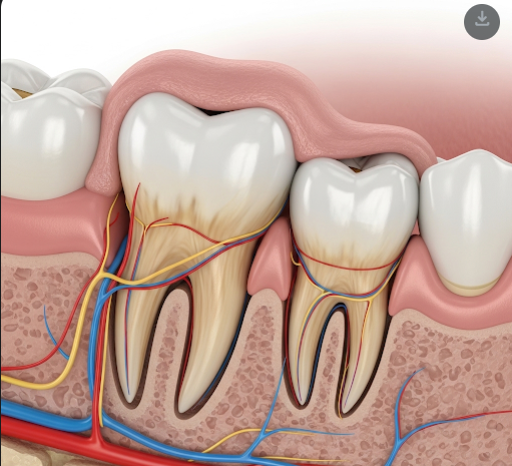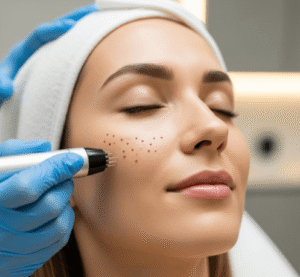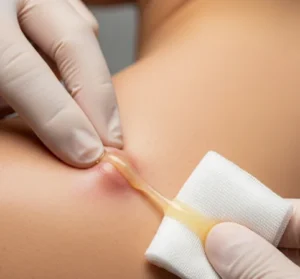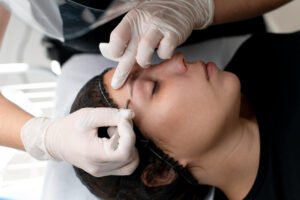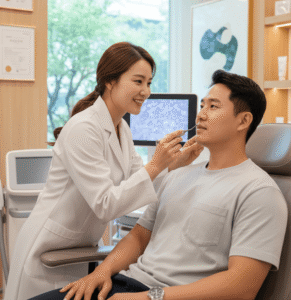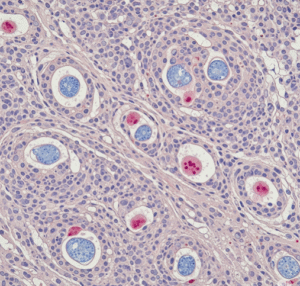Overview
Impacted wisdom teeth are a common dental condition where the third molars, also known as wisdom teeth, fail to erupt fully or properly into the mouth. This occurs due to limited space in the jaw or improper angulation of the teeth. Impacted wisdom teeth can lead to pain, infection, damage to neighboring teeth, and other oral health problems. In Korea, dental hospitals and specialized oral surgery centers use advanced diagnostic tools and minimally invasive surgical techniques to effectively manage impacted wisdom teeth.
What are Impacted Wisdom Teeth?
Impacted wisdom teeth are third molars that do not fully emerge through the gum line due to blockage by other teeth, bone, or soft tissue. These teeth may be partially erupted or completely trapped within the jawbone, potentially causing complications if not addressed timely.
Symptoms
- Pain or tenderness in the back of the mouth
- Swollen, red, or bleeding gums around the wisdom tooth
- Bad breath or unpleasant taste caused by infection
- Difficulty opening the mouth or chewing
- Swelling of the jaw or face in severe cases
- Headaches or ear pain related to dental discomfort
- Sometimes asymptomatic, discovered during routine dental exams
Causes
- Insufficient space in the jaw for wisdom teeth to erupt
- Abnormal tooth positioning or angulation
- Dense surrounding bone or thick gum tissue blocking eruption
- Genetic factors affecting jaw size and tooth development
Risk Factors
- Age (usually impacted wisdom teeth emerge between 17-25 years)
- Family history of impacted wisdom teeth
- Poor oral hygiene leading to infections around partially erupted teeth
- Delayed or abnormal tooth eruption patterns
Complications
- Pericoronitis (infection of gum tissue around partially erupted tooth)
- Tooth decay in impacted or neighboring teeth due to trapped food debris
- Damage to adjacent teeth or roots
- Formation of cysts or tumors around the impacted tooth
- Gum disease or bone loss around the affected area
- Chronic pain and jaw stiffness
Prevention
- Regular dental check-ups with panoramic X-rays to monitor wisdom tooth development
- Early evaluation by dental specialists during teenage years
- Maintaining good oral hygiene, especially around wisdom teeth areas
Treatment Options in Korea
Diagnosis
- Clinical examination of symptoms and oral condition
- Panoramic radiographs and cone-beam CT scans for detailed assessment
- Evaluation of tooth position, adjacent nerves, and bone density
Medical Treatments
- Antibiotics and anti-inflammatory drugs to manage infection and pain
- Oral rinses and improved hygiene for mild gum inflammation
Surgical or Advanced Therapies
- Surgical extraction of impacted or problematic wisdom teeth under local or general anesthesia
- Minimally invasive surgical techniques to minimize discomfort and recovery time
- Use of sedation dentistry for anxious patients
Rehabilitation and Support
- Post-surgery care including pain management, cold compresses, and diet modifications
- Instructions for oral hygiene to prevent infection
- Follow-up visits for wound healing and complication monitoring
Top Hospitals or Clinics in Korea
- Seoul National University Dental Hospital – Oral and Maxillofacial Surgery
- Samsung Medical Center – Department of Dental Medicine
- Asan Medical Center – Oral Surgery Clinic
- Yonsei Severance Hospital – Dental and Oral Surgery Department

